
The Republic of Vietnam Campaign Medal, also known as the Vietnam Campaign Medal, is a South Vietnamese military campaign medal which was created in 1949, and awarded to French military personnel during the First Indochina War. During the Vietnam War, the South Vietnamese government awarded the Republic of Vietnam Campaign Medal with Device to members of the South Vietnamese military for wartime service and on March 24, 1966, to members of the U.S. military for support of operations in Vietnam. In May 1966, other allied foreign military personnel became eligible for the award.
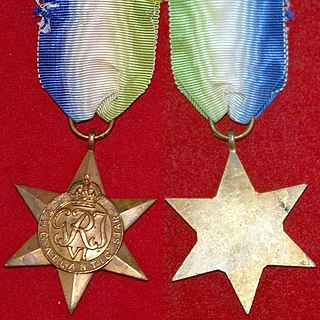
The Atlantic Star is a military campaign medal, instituted by the United Kingdom in May 1945 for award to British Commonwealth forces who took part in the Battle of the Atlantic, the longest continuous campaign of the Second World War.

The 1939–1945 Star is a military campaign medal instituted by the United Kingdom on 8 July 1943 for award to British and Commonwealth forces for service in the Second World War. Two clasps were instituted to be worn on the medal ribbon, Battle of Britain and Bomber Command.

The Air Crew Europe Star is a military campaign medal, instituted by the United Kingdom in May 1945 for award to British and Commonwealth air crews who participated in operational flights over Europe from bases in the United Kingdom during the Second World War.

The France and Germany Star is a military campaign medal, instituted by the United Kingdom in May 1945 for award to British Commonwealth forces who served in France, Belgium, Luxembourg, the Netherlands or Germany and adjacent sea areas between 6 June 1944 and 8 May 1945, during the Second World War.

The Malaysian Service Medal is a medal given by the King and Government of Malaysia. Established 3 March 2004, the medal recognizes service by members of the Malaysian Armed Forces during the Malayan Emergency, Second Malayan Emergency, and the Indonesia–Malaysia confrontation. The medal was also offered for award to members of the Commonwealth forces from Australia, Fiji, India, Nepal, New Zealand, and the United Kingdom who served in Malaysia during the Malayan Emergency and the Indonesia–Malaysia confrontation. The award is in recognition of "distinguished chivalry, gallantry, sacrifice, or loyalty" in contributing to the freedom of independence of Malaysia. The medal can be conferred and accepted posthumously by next of kin.
Prior to 1946 the New Zealand armed forces received honours of the United Kingdom, including military decorations and campaign medals. Since the end of World War 2 there have been constant moves towards an independent New Zealand honours system. This has resulted in a new system of New Zealand honours, gallantry and bravery awards, and campaign medals.
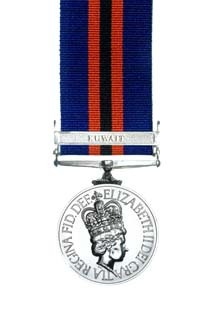
The New Zealand General Service Medal 1992 (Warlike) is a New Zealand campaign medal, authorised in 1992, for award to New Zealanders who have served in warlike operations for which no separate New Zealand or British Commonwealth campaign medal was issued.
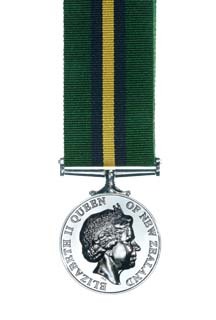
The New Zealand General Service Medal 2002 was a New Zealand campaign medal for service in the Solomon Islands. The medal was awarded for service during Operation Purple Haze 1 and 2, Operation Zephyr, and the International Peace Monitoring Team from 2000 to 2002 and with the Regional Assistance Mission to Solomon Islands (RAMSI) from 2003 to 2013.

The New Zealand General Service Medal 2002 was a New Zealand campaign medal for service in the Iraq.

The New Zealand General Service Medal 1992 (Non-Warlike) is a New Zealand campaign medal, authorised in 1992, for award to New Zealanders who have served in peacekeeping operations for which no separate UN medal was issued.
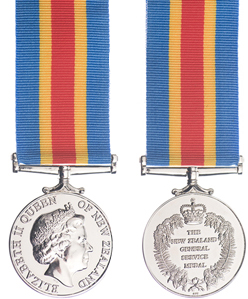
The New Zealand General Service Medal 2002 (Korea) is a New Zealand campaign medal for service in Korea. The New Zealand General Service Medal 2002 was established by royal warrant to recognize service since 2000. The NZGSM 2002 (Korea) was authorized by regulation on 5 September 2008. To qualify for this medal personnel must serve thirty days in the Republic of Korea with the United Nations Command Military Armistice Commission (UNCMAC) or the United Nations Command Honour Guard Company. Only service since 1 January 2001 qualifies. This medal replaces the award of the New Zealand General Service Medal 1992 (Non-Warlike) with the Korea 1958-2000 clasp.

The New Zealand General Service Medal 2002 (Afghanistan) is a campaign medal of New Zealand that recognizes service in the War in Afghanistan. The Queen of New Zealand authorized the creation of a new General Service Medal for the recognition of service taking place after December 2001 with a royal warrant on 23 July 2002. Regulations to establish the NZGSM 2002 (Afghanistan) were published 16 January 2003.

The Australian Operational Service Medal is a campaign medal established on 22 May 2012 to recognise service by Australian Defence Force (ADF) personnel on designated hazardous operations. It may also be awarded to civilians who serve alongside the ADF on designated operations under specific conditions.

The Arctic Star is a military campaign medal instituted by the United Kingdom on 19 December 2012 for award to British Commonwealth forces who served on the Arctic Convoys north of the Arctic Circle, during the Second World War.

The New Zealand General Service Medal 2002 (Counter-Piracy) is a New Zealand campaign medal for service in counter-piracy operations in an area centred on the Arabian Sea. The New Zealand General Service Medal 2002 was established by royal warrant to recognize service since 2000. The NZGSM 2002 (Counter-Piracy) was authorized by regulation on 27 March 2015. To qualify for this medal personnel must serve thirty days in an operational area as a member of a New Zealand Government contribution to a force undertaking counter-piracy operations. Only service on or after 1 January 2009 qualifies. Outside the Arabian Sea other areas of operation include the Gulf of Aden, the Western Indian Ocean, and off the coasts of Somalia, Yemen, and Oman. The earliest large deployment of New Zealand Forces was when HMNZS Te Mana served with Combined Task Force 151 and Operation Ocean Shield from November 2013 to February 2014.

The New Zealand General Service Medal 2002 is a New Zealand campaign medal for service in the land territory, airspace, and territorial sea of the country of Iraq since 4 November 2014.
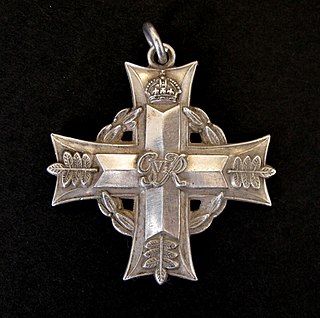
The New Zealand Memorial Cross is awarded to the next of kin of New Zealand service personnel who, since September 1939, have been killed on active service or later died of their wounds.















